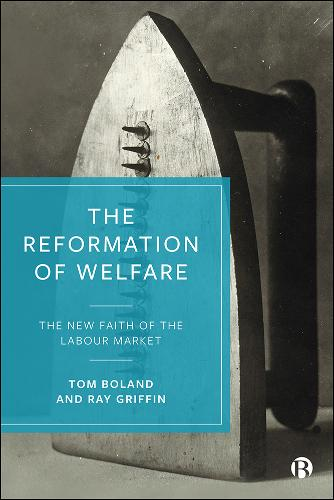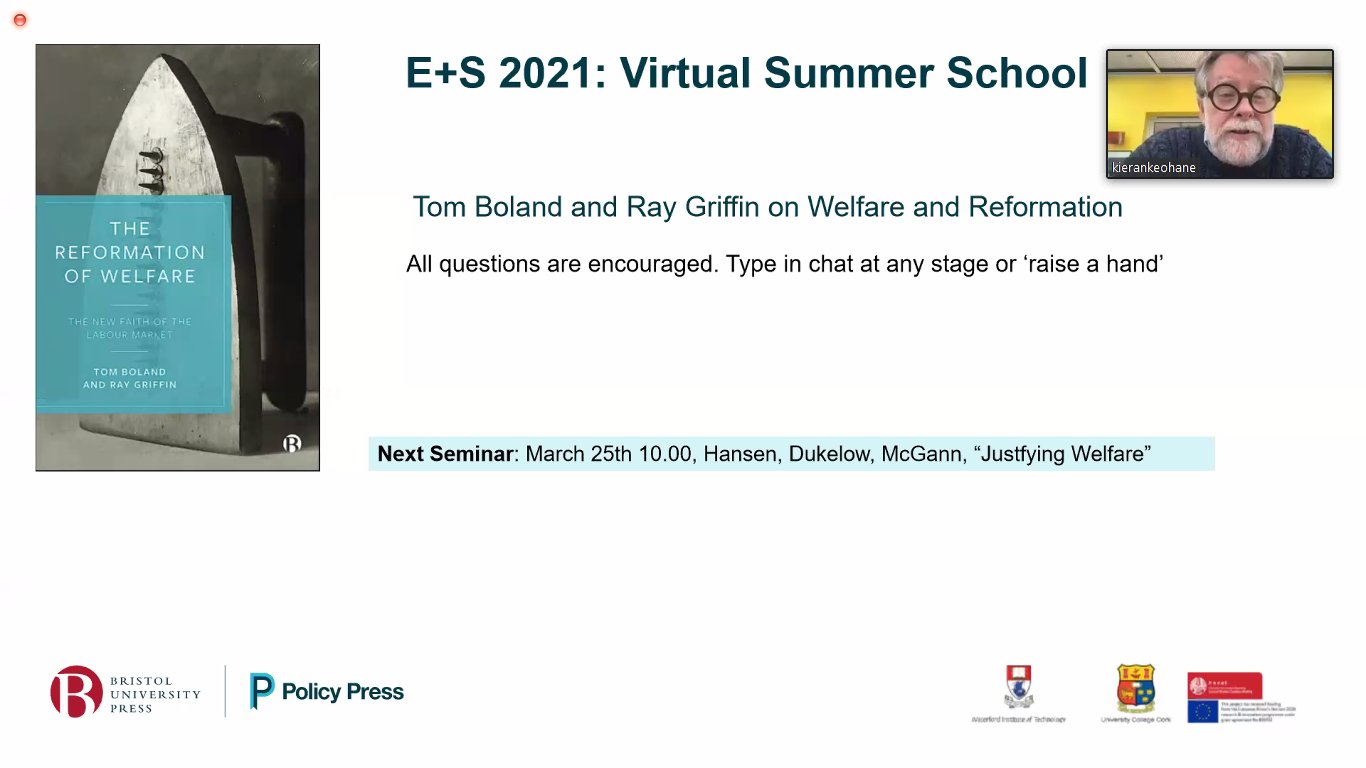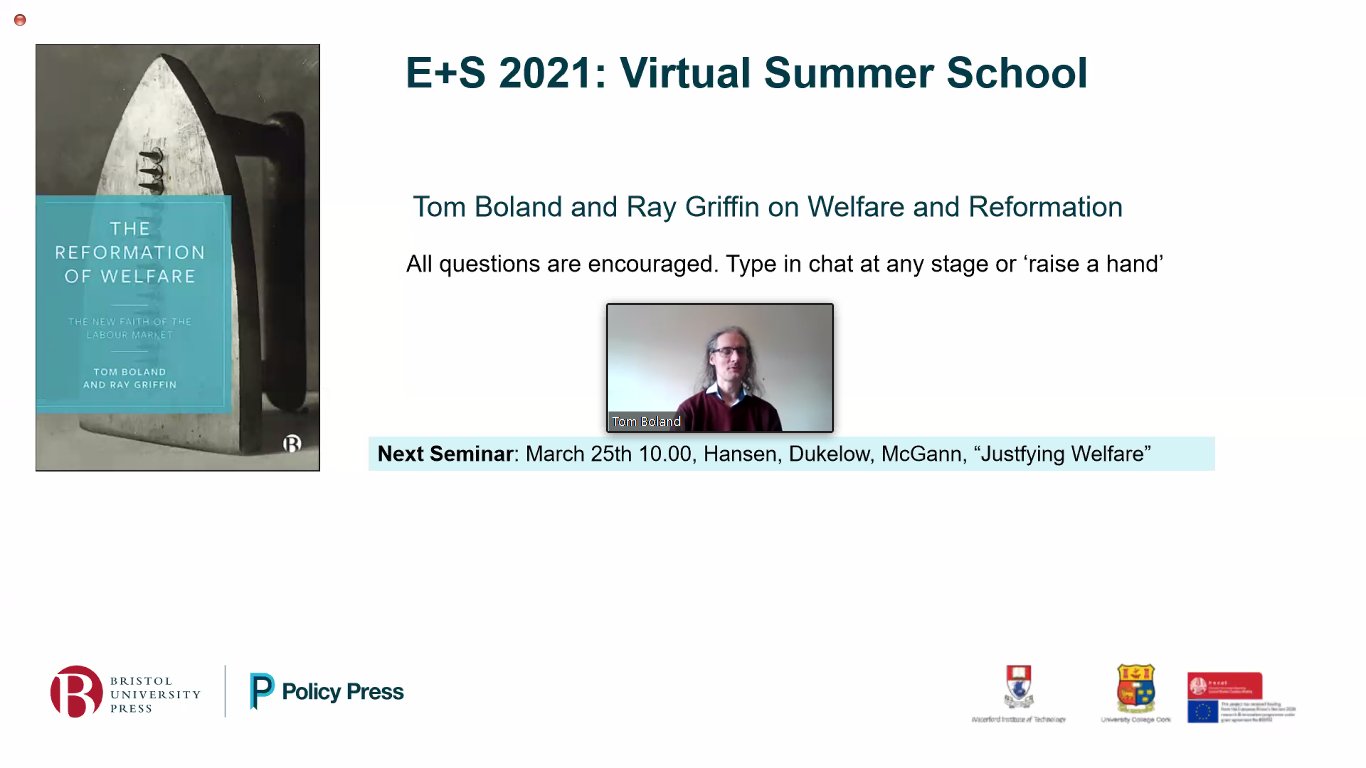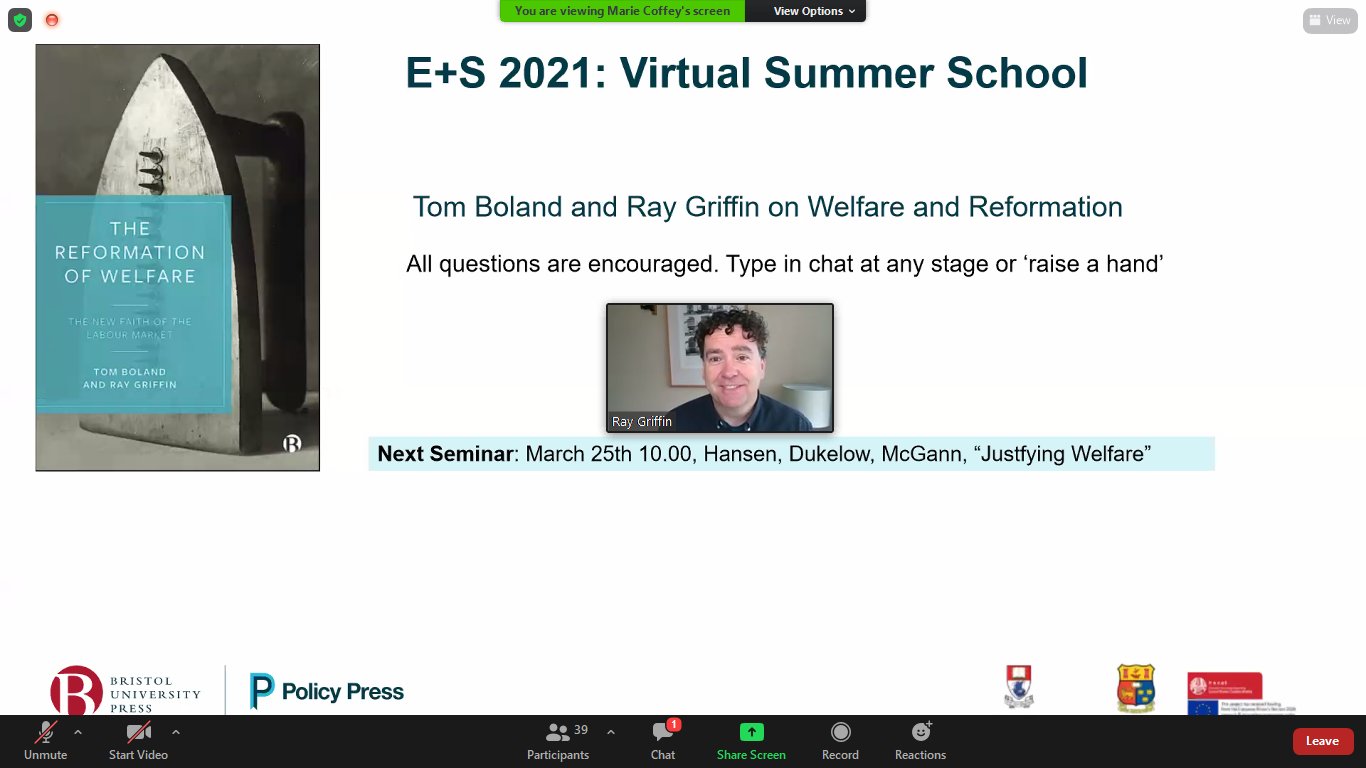Ray Griffin and Tom Boland – March 23rd – 10:00 GMT
Abstract:
Contemporary states incessantly pursue welfare reform: This talk traces how welfare has been conceptualised from early twentieth century models of social insurance, through the ILO definition of unemployment to the post-war welfare state, the spread of active labour market policies unto the responses to the Great Financial Crash in the Global Jobs Pact and EU-wide Youth Guarantee. From amidst this thicket of policy initiatives we identify the animus for ‘reform’, of social policies and of individuals. Through scrutiny, tests and trials, individuals are to be reformed, even experience conversion, transformed from being unemployed to active jobseekers, ardent careerists and willing workers. Key Christian texts, from the Epistles to Augustine’s Confessions articulated and promoted the idea of the self as malleable, always choosing, prone to error and sin, yet reformable through pastoral intervention, a model and process which has become embedded in modern institutions and the welfare state.


Recap:
Each seminar was recorded and featured one or more readings, please find these below.
Click here to view the recording.
Our first E&S seminar this week was with Tom Boland (UCC) and Ray Griffin (WIT) presenting work from their new book – The Reformation of Welfare.

This book builds on previous research on the labour market, welfare, and unemployment by attending to the underexplored realm of economic theology. This perspective was featured in two previous seminars, but broadly it argues that the world is incompletely sacralized and rumours of the death of theology and religion have been greatly exaggerated.
In the case of welfare, we have the curious case of the jobseeker. An economic subject who is seen as malleable, transformable, and changeable. The jobseeker has misapprehensions about the world and the labour market, and it is the duty of the State (and other social forces) to help change this person into a different kind of person who is more appropriate to the labour market. The fingerprints of neoliberalism are impossible to ignore. However – this new book is not here to try to pull the oft repeated academic trick, where it is proposed that all other perspectives are mistaken – but if you listen to me then you will finally know The Truth of The World.

Instead, the book has a more modest aim. It seeks to show that our contemporary ideas about the labour market and economic subjectivity are rooted in theological conceptions about how the world works. Take the Golem for example, a humanoid (by appearance) creature from Jewish folklore. The Golem is made entirely of clay, and can (in principle) be moulded or pressed into any shape its creator would desire. The kernel to take away here is that humans can be changed – something the neoliberal welfare State has pursued with vigour.

People can be reformed, or altered, and we have a wide array of theologically inspired tools to help us do this. It is common today, for example for the State to provide caseworkers, who meet with the unemployed one-on-one and offer help and advice for how to train, retrain, jobsearch, craft a CV, or navigate the labour market. It is difficult to see how such an idea could be disconnected from the theological device of confession. The unemployed must not only meet with their caseworker (confessor), but also appear to them as a worthy failure who has legitimately attempted to find work, but is unable to. Just as a sinner enters the confession box and explains that they have tried to refrain from sloth, wrath, lust (etc.) but have failed, and are in need of forgiveness.

If you find these ideas interesting then keep an eye out for The Reformation of Welfare – which will go on sale June 2021 through publisher Policy Press.
Previous seminar: Ilana Gershon – Jobseeking & The Labour Market.
Next seminar: Magnus P. Hansen in conversation with Fiona Dukelow and Michael McGann – Justifying Welfare.
